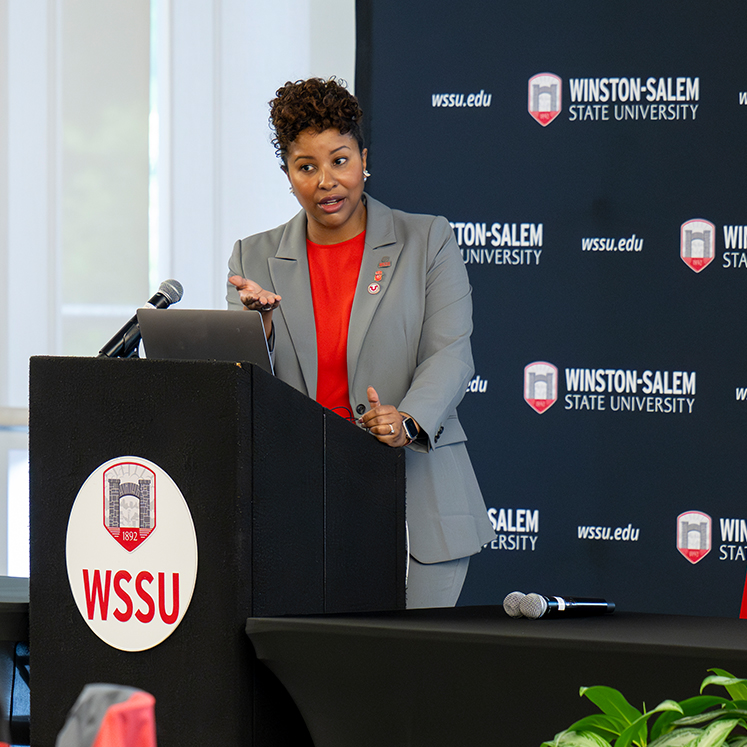WSSU, first HBCU Adobe Cloud campus, hosts AI-focused festival with faculty
Trailblazing keynote speaker is WSSU alumna
Winston-Salem State University (WSSU) continued its leadership in digital innovation and faculty development with the annual Adobe Bash Faculty Festival, hosted by the Center for Innovative and Transformative Instruction (CITI). This year’s theme, “Back to the Future with Artificial Intelligence,” brought together educators across disciplines to explore transformative uses of AI in teaching, learning and student engagement.
Held each spring and generously sponsored by the Adobe Foundation, the faculty festival underscores WSSU’s standing as the first HBCU to become an Adobe Creative Cloud Campus, where all students, faculty and staff have full access to Adobe Creative Cloud. The event promotes digital literacy, instructional innovation and career readiness in an evolving technological landscape.

In the opening message, Dr. Wanda White-Walker, director of CITI, stated, “Artificial intelligence is no longer a concept confined to science fiction. It’s here! It’s evolving! And most importantly, it’s ready to support us in delivering deeper, more personalized educational experiences for our students. Our future is not something we wait for – it’s something we design. With AI as a partner – not the substitution – the possibilities are limitless.”
The festival featured keynote speaker, Dr. Siobahn Grady, a WSSU alumna and trailblazer in the field of computer science. Grady made history in 2018 as the first woman to earn a Ph.D. in computer science from North Carolina A&T State University.
She currently serves as assistant professor and program director of information science/systems at the School of Library and Information Sciences at North Carolina Central University. Notably, she heads the Laboratory for Artificial Intelligence and Equity Research, co-directs the Center for Data Equity and holds the title of an Office e-Learning faculty fellow.
She brought powerful insights into the responsible and equitable use of AI. Her research focuses on combating misinformation on social media and improving fault detection in autonomous vehicles, demonstrating how machine learning can be applied to real-world challenges.
As an alumna and life member of the WSSU National Alumni Association, her message resonated deeply with the WSSU community, especially as the university continues to align technology with inclusive academic practices.
“I’m excited to know that the faculty at Winston-Salem State University are considering AI as a tool and copilot to help them do the work they are already doing more excellently,” Grady said, calling the session “futuristic.”
From a panel discussion on generative AI to AI tool demonstrations, the Adobe Bash Faculty Festival offered strategies to empower faculty with the digital resources needed to enrich the classroom experience.
“As we explore the different ways to incorporate AI into our teaching, I am hopeful that we will be able to transform our students’ experiences, adequately preparing them to excel in their respective careers and ensuring they are well positioned to achieve their goals in life,” said Dr. Jeremiah E. Shipp, senior faculty development specialist for CITI.
Dr. Todd Taylor, an Adobe pedagogical evangelist who led a session at the festival, said WSSU is far more advanced than other universities. “They are leaders in this area, and they have the right heart and the right vision. The focus on authentic assessment in teaching and learning is exactly the way it should be, so it’s so exciting to see this campus leading,” he said.
